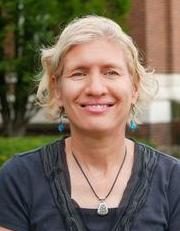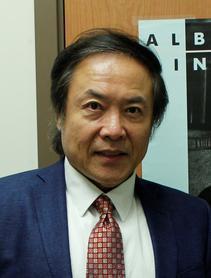Current Materials Science Engineering Graduate Students
The department offers programs of study that lead to a Master of Science, Doctor of Philosophy, and Master of Engineering in Mechanical Engineering or Materials Science and Engineering.
Master of Science
Credit Hour Requirements
- 20 From MSE Approved Courses
- 12 From Core Courses
- 10 Minimum Research Credit Hours
*30 Minimum Credit Hours Total
Current Materials Science Engineering Graduate Students
Thesis Credit Hour Requirements
- 10 Minimum Credit Hours for Thesis Based M.S.
Core Courses
- Advanced Thermodynamics (MTEN-7035)
- Mechanical Behavior of Materials II (MTEN-6097)
- Kinetics of Materials Processing (MTEN-6020)
- Phase Transformations in Solids (MTEN-6071) Polymers
- Advanced Thermodynamics (MTEN-7035)
- Introduction to Polymer Science (MTEN-7094)
- Properties of Polymers (MTEN-6034)
- Polymer Analysis/Characterization (MTEN-7032C)
- Thesis: No page requirement.
- A successful oral defense of the thesis before the student’s chosen committee is a degree requirement.
- Copies of the thesis must be submitted to the Thesis Committee members at least one week prior to the oral defense.
- The oral examination will start with a formal presentation (20-30 minutes) by the student, followed by questions from the members of the thesis committee and members of the audience.
- The entire examination may not exceed 2 hours.
*Your Research Advisor should suggest and help coordinate with possible committee members
Master of Engineering
Project Completion
3 Credit hour course. This is not a research thesis. The student will apply knowledge gained through course work to a project topic agreed upon by the student and the student’s advisor. Use Appendix A from MEng Handbook to submit the proposal. Follow and submit Appendix B from the MEng handbook along with the completed project.
MEng Capstone Evaluation
This is a 0 credit hour capstone (make sure to fulfill the 30 credit hour requirement). Determined by the Program, the student will take a written exam, perform an interview, or write a summary encompassing knowledge gained through all Core, Track, and Elective Courses.
Internship
Minimum time for a capstone internship is 400 hours. If a capstone is not secured by the 5 th semester of the program, the student must then complete a project or paper. Submit Appendix C from the MEng handbook. Students submit a final report per Appendix E from the MEng handbook.
Written Paper
A project topic is submitted using Appendix A from the MEng handbook. Once agreed upon by the advisor, the student will write a paper on the chosen topic using knowledge gained through their course work. The paper will be graded based on thoroughness, accuracy, formatting, and grammar. Follow and submit Appendix B from the MEng handbook along with the paper.
*Verification of Completion of Chosen Capstone is Completed through Appendix F in the MEng Handbook
Doctor of Philosophy (PhD)
Credit Hour Requirements
- 30 Course Work Credit Hours
- 24 From MSE Courses
- 15 From Core Courses
- 6 From Approved Courses
- 60 Minimum Research Credit Hours
*90 Minimum Credit Hours Total
Required Courses
Metals/Ceramics
- Advanced Thermodynamics (MTEN-7035)
- Mechanical Behavior of Materials II (MTEN-6097)
- Kinetics of Materials Processing (MTEN-6020)
- Phase Transformations in Solids (MTEN-6071)
- Diffraction Theory (MTEN-7048)
- Advanced Materials Techniques (MTEN-7010C)
Polymers
- Advanced Thermodynamics (MTEN-7035)
- Introduction to Polymer Science (MTEN-7094)
- Properties of Polymers (MTEN-6034)
- Polymer Analysis/Characterization (MTEN-7032C)
- Diffraction Theory (MTEN-7048)
- Advanced Materials Techniques (MTEN-7010C)
*PhD Candidacy: Students must maintain at least a 3.0 GPA in courses at UC and within the MSE Program.
- An Academic Advisor should be selected by the student within the first semester of graduate school to provide assistance with structuring course based credit hours. The Academic Advisor does not necessarily need to meet the student’s research interests but must belong to the MSE program.
- A Research Advisor (Thesis Advisor) should be selected within the first semester that meets the student’s research interests. The Research Advisor will guide the student through the research based credit hours and may belong to another program with the approval of the Graduate Studies Director.
- The Academic and Research Advisors may be different faculty. Only the Academic Advisor must belong to the MSE department.
For additional information

Julie J Steimle
Asst Dir Academic Student Advising, CEAS - Graduate Studies
895A Rhodes Hall

Donglu Shi
Professor (F2), CEAS - Materials Science & Engineering
493 Rhodes Hall
Dr. Donglu Shi served as Chair and Graduate Director of Materials Science and Engineering from 2013 to 2023. He is presently the Director of Energy Materials and Nanomedicine Laboratories in the College of Engineering and Applied Science. Dr. Shi has conducted research across diverse fields such as nanoscience, energy materials, biomedical engineering, precision medicine, and condensed matter physics. His efforts have led to over 300 peer-reiewed journal publications with a Google Scholar h-index of 79. Some of his papers have appeared in leading journals like Nature, Nature-Communications, Physical Review Letters, Advanced Materials, and ACS Nano. He was a visiting scholar at Zurich University of Applied Sciences (ZHAW), Switzerland, Centre National de la Recherche Scientifique, Grenoble, France, and a Fellow at Fitzwilliam College, University of Cambridge conducting research on energy materials and nanomedicine. Additionally, Dr. Shi is a Fellow of ASM International and a Graduate College Fellow at the University of Cincinnati. He has so far supervised a total of 50 graduate students.
NSF research programs on energy materials
NSF research on plasma virus disinfection
Personal Website